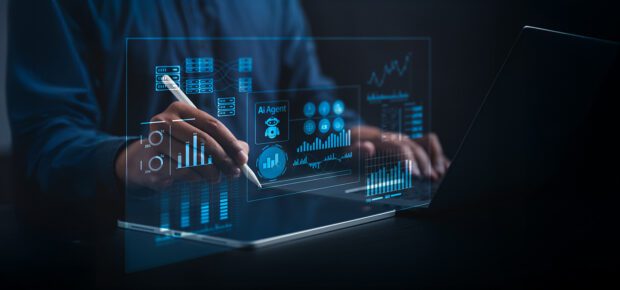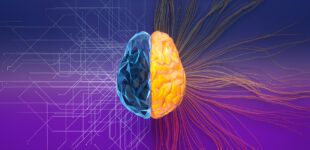July 30, 2025
AI agents represent a fundamental shift from today’s permission-based apps to autonomous systems that act independently. Unlike current voice assistants that respond to commands, agentic AI can make decisions, perform complex tasks and access vast amounts of personal data without constant human oversight. This autonomy creates unprecedented privacy and security risks, as these systems require access to massive amounts of personal data.
We’ve grown used to our apps asking for permission: to access your location, to view your contacts or to use your microphone. Agentic artificial intelligence flips the script. These systems don’t just ask, they act, blurring the line between assistant and autonomous operator.
But they have the potential to introduce new, and extremely significant, privacy and security risks.
That’s because all the things experts predict AI agents will do in the future, like scheduling vacations, confirming doctor’s appointments and even shopping for the best deals, require access to sensitive data, like financial information or your location.
Analyst firm Gartner warns that one in four enterprise breaches will involve agentic AI misuse. So it’s important to understand what AI agents are, how they introduce new privacy risks and how cybersecurity experts have worked to mitigate those risks.
What Exactly Are AI Agents?
AI agents, also known as agentic AI, are artificial intelligence systems with an extremely high degree of autonomy. They can act on their own to achieve goals without requiring constant control from humans, said IEEE Senior Member Keeley Crockett.
“These systems can make decisions, perform actions and adapt to situations based on their programming and the data they possess, typically without human input,” Crockett said.
While AI agents may be deployed in cybersecurity or in finance, many experts envision a new wave of personal digital assistants capable of managing significant portions of our lives, from ordering groceries to proactively setting reminders.
But these systems differ greatly from the voice-activated assistants commonly found on your smart phone. Those systems are reactive, Crockett said, and don’t have independent goal-setting abilities.
“They can perform single, simple tasks but cannot take any meaningful actions unless they have direct human input,” Crockett said.
Voracious Demand for Data
Data is the lifeblood of any artificial intelligence system, and AI agents are no different. Getting them to act autonomously might require access to massive amounts of data.
“Agentic AI would need access to everything, including bank accounts, medical records, calendar, location history, communication patterns, shopping habits and even biometric data for health monitoring,” said IEEE Senior Member Vaibhav Tupe.
“Current apps typically access one data type, but agentic AI needs to connect dots across your entire digital life,” Tupe said.
Exponential Rise in Risk
The privacy risks associated with agentic AI are orders of magnitude greater than those we encounter today.
“Agentic AI requires comprehensive data integration that’s fundamentally different from today’s siloed approach, meaning the risk multiplies instead of simply adding up,” IEEE Senior Member Kayne McGladrey said.
The typical consumer app, one that isn’t dependent on agentic AI, might access either your health data or your financial data. Agentic systems could need both at the same time, plus historical patterns and real-time monitoring capabilities.
The current crop of consumer algorithms processes data for specific purposes, and they usually ask for permission.
“Agentic AI proactively gathers information across multiple domains and makes autonomous decisions about how to use it,” McGladrey said. “Today’s systems typically require user approval for actions, but agentic AI is designed to operate independently with minimal human oversight, creating new categories of liability exposure.”
Securing AI Agents
So how can people protect their privacy when using AI agents?
Cybersecurity experts recommend a multi-layered approach that starts with basic security hygiene but extends to new practices specifically designed for autonomous AI systems.
“Enable multi-factor authentication on all accounts, minimize data sharing to only what’s absolutely necessary for specific tasks and create separate accounts for different purposes to compartmentalize digital exposure,” McGladrey said.
The compartmentalization strategy becomes particularly important with AI agents, which often require access to multiple data sources. Rather than granting one AI system access to everything, users should consider using different AI tools for different purposes, one for financial tasks, another for health management and so on.
“Use privacy-focused browsers and tools, regularly audit device permissions and maintain healthy skepticism about AI systems that seem too good to be true,” McGladrey said.
Experts also recommend treating AI interactions differently from traditional app usage.
“I recommend treating every AI interaction as creating a potentially permanent record and planning accordingly before sharing sensitive information,” McGladrey said.
Learn More: Major AI developers are now developing AI agents that can use computers the way humans do, searching the web, filling out forms and buying tickets. IEEE Spectrum poses a question: Are you ready to let AI use your computer?





 Meaningful Momentum or Running in Place?
Meaningful Momentum or Running in Place? AI Through Our Ages
AI Through Our Ages Liquid Infrastructure: Our Planet's Most Precious Resource
Liquid Infrastructure: Our Planet's Most Precious Resource The Impact of Technology in 2025
The Impact of Technology in 2025 Quantum and AI: Safeguards or Threats to Cybersecurity?
Quantum and AI: Safeguards or Threats to Cybersecurity? Why AI Can't Live Without Us
Why AI Can't Live Without Us Bits, Bytes, Buildings and Bridges: Digital-Driven Infrastructure
Bits, Bytes, Buildings and Bridges: Digital-Driven Infrastructure Impact of Technology in 2024
Impact of Technology in 2024 Emerging AI Cybersecurity Challenges and Solutions
Emerging AI Cybersecurity Challenges and Solutions The Skies are Unlimited
The Skies are Unlimited Smart Cities 2030: How Tech is Reshaping Urbanscapes
Smart Cities 2030: How Tech is Reshaping Urbanscapes Impact of Technology 2023
Impact of Technology 2023 Cybersecurity for Life-Changing Innovations
Cybersecurity for Life-Changing Innovations Smarter Wearables Healthier Life
Smarter Wearables Healthier Life Infrastructure In Motion
Infrastructure In Motion The Impact of Tech in 2022 and Beyond
The Impact of Tech in 2022 and Beyond Cybersecurity, Technology and Protecting Our World
Cybersecurity, Technology and Protecting Our World How Technology Helps us Understand Our Health and Wellness
How Technology Helps us Understand Our Health and Wellness The Resilience of Humanity
The Resilience of Humanity Harnessing and Sustaining our Natural Resources
Harnessing and Sustaining our Natural Resources Creating Healthy Spaces Through Technology
Creating Healthy Spaces Through Technology Exceptional Infrastructure Challenges, Technology and Humanity
Exceptional Infrastructure Challenges, Technology and Humanity The Global Impact of IEEE's 802 Standards
The Global Impact of IEEE's 802 Standards Scenes of our Cyber Lives: The Security Threats and Technology Solutions Protecting Us
Scenes of our Cyber Lives: The Security Threats and Technology Solutions Protecting Us How Millennial Parents are Embracing Health and Wellness Technologies for Their Generation Alpha Kids
How Millennial Parents are Embracing Health and Wellness Technologies for Their Generation Alpha Kids Space Exploration, Technology and Our Lives
Space Exploration, Technology and Our Lives Global Innovation and the Environment
Global Innovation and the Environment How Technology, Privacy and Security are Changing Each Other (And Us)
How Technology, Privacy and Security are Changing Each Other (And Us) Find us in booth 31506, LVCC South Hall 3 and experience the Technology Moon Walk
Find us in booth 31506, LVCC South Hall 3 and experience the Technology Moon Walk Virtual and Mixed Reality
Virtual and Mixed Reality How Robots are Improving our Health
How Robots are Improving our Health IEEE Experts and the Robots They are Teaching
IEEE Experts and the Robots They are Teaching See how millennial parents around the world see AI impacting the lives of their tech-infused offspring
See how millennial parents around the world see AI impacting the lives of their tech-infused offspring Take the journey from farm to table and learn how IoT will help us reach the rising demand for food production
Take the journey from farm to table and learn how IoT will help us reach the rising demand for food production Watch technical experts discuss the latest cyber threats
Watch technical experts discuss the latest cyber threats Explore how researchers, teachers, explorers, healthcare and medical professionals use immersive technologies
Explore how researchers, teachers, explorers, healthcare and medical professionals use immersive technologies Follow the timeline to see how Generation AI will be impacted by technology
Follow the timeline to see how Generation AI will be impacted by technology Learn how your IoT data can be used by experiencing a day in a connected life
Learn how your IoT data can be used by experiencing a day in a connected life Listen to technical experts discuss the biggest security threats today
Listen to technical experts discuss the biggest security threats today See how tech has influenced and evolved with the Games
See how tech has influenced and evolved with the Games Enter our virtual home to explore the IoT (Internet of Things) technologies
Enter our virtual home to explore the IoT (Internet of Things) technologies Explore an interactive map showcasing exciting innovations in robotics
Explore an interactive map showcasing exciting innovations in robotics Interactively explore A.I. in recent Hollywood movies
Interactively explore A.I. in recent Hollywood movies Get immersed in technologies that will improve patients' lives
Get immersed in technologies that will improve patients' lives